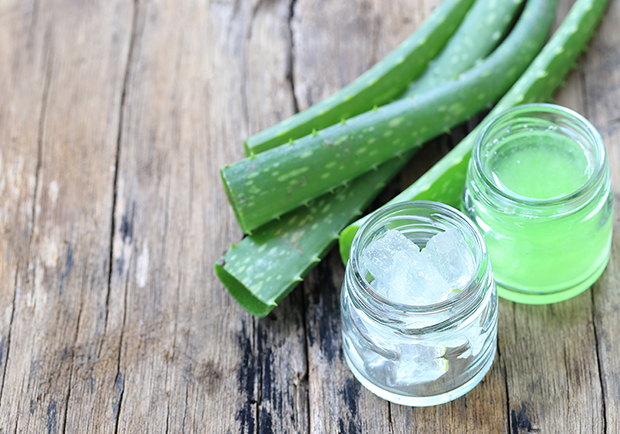Is Clutter Affecting Your Health? Here Are Some Organization Tips!
Clutter can be more detrimental to your mental and physical health than you know.
Everyone has clutter in their home, whether it be a junk drawer, a never-ending stack of papers at corner of the kitchen bar, or an ungodly amount of games and toys stuffed into a closet. Life is busy, so not everyone has the time and energy to put everything they own away in its proper place.
However, new studies reveal that too much clutter in your home can actually be detrimental to your health. Taking the time to be mindful of your living space and getting organized can make a positive change to your wellbeing!
Here are a few ways clutter affects your health and a few ideas to beat the disorganization:
How clutter affects health
It might seem far-fetched to think that that pile of papers you've been meaning to sort through might be adding to your mental strain, but it’s true! Studies show that clutter can increase stress, decrease one’s ability to focus, cause insomnia, and even negatively affect relationships.
Clutter can be a nuisance, causing you to lose items you need for your day-to-day life, and it can be a real embarrassment too. Who wants to invite friends over when the coffee table is covered in junk? Too much clutter can even be a safety hazard.
Clutter can also take a digital form, like having a smartphone with many disorganized apps, an email inbox overflowing with unread messages, or a desktop with thousands of files that are all out of order.
However clutter appears in your life, the first step to making changes is taking note of how those little piles are adding to your stress each day. Being aware can help to improve your overall quality of life.
How to stay clutter-free
There are a lot of tips floating around that can help you recognize and overcome the clutter in your home.
- First, identify what is making you stick to your cluttery habits. Clutter wouldn’t be a thing if everyone didn’t find some sort of benefit from disorganization. A few common reasons people have clutter is because they are afraid of throwing things away, they find comfort in what they own, and leaving things out and about can act as a physical reminder for their to-do list.
Also, when clutter is already in place, it can make people too overwhelmed and unmotivated to do anything about it. After all, getting organized takes work, while throwing your keys in the pile on the counter after work doesn’t! But figuring out what is keeping you cluttered can help you make a fool-proof plan to make changes.
- Next, focus on reduction. It can feel like a waste to throw away our piles, but often the greatest step you can take in organization is reduction. Instead of feeling overwhelmed and throwing away full piles of clutter, make different piles full of items you want to keep, items you can sell (a yard sale is always a great idea) or give away, and items you can throw away.
Your junk drawer or cupboard is a great place to start! A good rule of thumb is to throw away anything that you haven’t used in the past 12 months. Also, never hesitate to throw away anything that’s broken (especially if you’ve insisted on getting it fixed for the past few years!).
- Take small steps. Breaking habits takes time! So, your best bet in sticking to organization is by taking baby steps. You can try just keeping surfaces like your counter tops or your nightstands free of items to start. Put frequently used items in easily accessed places like top drawers or bottom shelves. Put your warm weather clothes in one drawer and winter wardrobe in another. (Organizing items by priority might also help you reduce even more of your products and items too. Constantly getting rid of the things you don’t need is a step you can always go back to for a squeaky-clean home).
- Use organizing containers. Containers can save you from so much stress. If you have a habit of shoving your beauty products in your bathroom drawers, instead, try using small, organization containers inside the drawers. You can also do this in your pantry, with your children’s toys, and throughout the home. It might seem silly to have containers within containers within containers, but when you have a specific, organized spot for your items, you will be amazed at how well things stay in order all throughout your home.
- Don’t forget the digital space. Your digital space can affect you just as much as your physical space! Always take steps to keep things running smoothly. Keep tabs on how many email chains you are subscribed to and consider unsubscribing to some. Get rid of apps you haven’t used in a while. Delete emails that you’ve read or put them in an archive folder for later use to keep your inbox tidy. Use folders on your desktop to organize all your documents and delete the ones you don’t need. Your digital space and your future self will thank you for your efforts.
- Maintain. There are two steps to decluttering: Cleaning up the clutter, and then keeping the clutter from coming back. Organization is a skill that is learned over time. It can’t hurt to keep learning more tips from books, podcasts, or even TV shows to show you how you can keep your house spick and span. It’s also helpful to do a check-in every once in a while with what is working and what’s not. Ask yourself if you need more storage bins (or fewer!), if you need a new space for your family’s shoes, or if you have a whole bunch of clothes you’re not wearing anymore. Checking in with yourself and your family regularly can help you maintain a clutter-free home.
- Be patient with yourself. If you spend your whole day cleaning only to find even more piles the next day, give yourself a break (especially if you have kids!). Life is messy and busy and sometimes all we can do is the best we can, even if that means there is still a pile of toys or a stuffed closet in the house. Take every organization project one step at a time and reward yourself when one is finished! Allow you and your family compassion as you continue to learn and to practice the art of decluttering.
Realated: 7 Things You Can Do Right Now to Practice Self Care
And remember, if you are struggling with your mental health or with the thought of throwing things away or making changes in your life, there are mental health professionals who can help you start building the life and the tidy living space you want.





